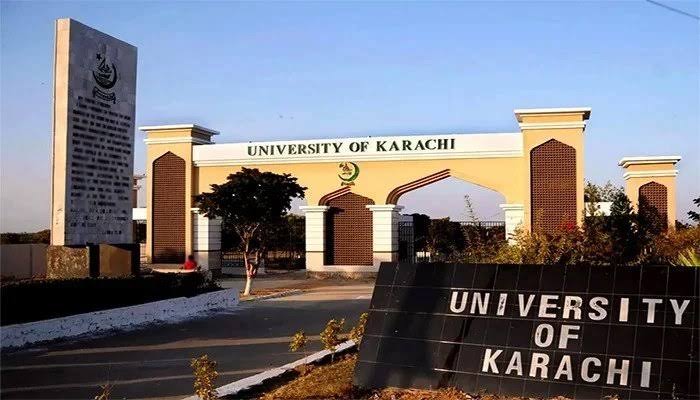Dr. Sohail Rajput, Sindh Chief Secretary, announced the government’s plans to establish an Information Technology University, with the allotted land being a significant step towards realizing this vision. Speaking at an event organized by the Alumni Association of Government College University Hyderabad (GCUH) Karachi chapter at the Arts Council of Pakistan Karachi, Dr. Rajput highlighted the efforts of Sindh Chief Minister Syed Murad Ali Shah in elevating the college to university status. Emphasizing the potential in the IT field and the opportunity to earn foreign exchange, he urged the Association to establish a strong platform and fund scholarships for deserving students.
Justice (retd) Ameer Hani Muslim acknowledged the exceptional achievements of students from Government College University Hyderabad across various fields, who have attained prominent positions in their respective domains. Recognizing the need for a good law college in the public sector, he expressed his willingness to offer services free of charge. Justice Muslim commended the efforts of the Alumni Association and assured them of his support in their initiatives.
Abdul Rahman Rajput, President of the Alumni Association, expressed gratitude to the Sindh government and the chief minister for their invaluable support towards Government College University Hyderabad. He emphasized the Association’s commitment to continue playing an active role in the development of the college. Mr. Rajput highlighted the ongoing efforts to establish a permanent fund, which is receiving contributions from overseas members in addition to those from Karachi.
The establishment of an Information Technology University aligns with the increasing demand for skilled IT professionals and the potential for economic growth in the sector. By providing quality education and training in IT disciplines, the university will contribute to building a skilled workforce and enable Pakistan to harness the opportunities presented by the digital age. The IT industry has the potential to generate substantial foreign exchange earnings through software development, IT services, and outsourcing.
The proposal to establish a scholarship fund reflects the Alumni Association’s commitment to nurturing talent and empowering deserving students. By providing financial assistance, scholarships enable students to pursue their education without the burden of financial constraints. This initiative can significantly contribute to increasing access to quality education and promoting meritocracy in higher education institutions.
The Alumni Association’s active engagement in college development underscores the importance of collaborative efforts between educational institutions, alumni, and the government. By leveraging the expertise and resources of alumni, Government College University Hyderabad can enhance its infrastructure, academic programs, and extracurricular activities. The support from the Sindh government further strengthens these partnerships and demonstrates a shared commitment to the progress of the college.
Alumni associations play a crucial role in fostering a sense of belonging, promoting networking opportunities, and supporting the alma mater’s growth. Through their active involvement, alumni can contribute their expertise, mentorship, and financial resources to create a positive impact on educational institutions. The Karachi chapter of the Alumni Association serves as a testament to the dedication and collective efforts of alumni in advancing the mission of Government College University Hyderabad.
The Sindh government’s commitment to establishing an Information Technology University demonstrates its recognition of the immense potential in the IT sector and the need for skilled professionals. The Alumni Association’s support for Government College University Hyderabad, through initiatives such as scholarships and collaborative partnerships, further strengthens the institution’s development. With the combined efforts of the government, alumni, and educational institutions, Pakistan can nurture talent, foster innovation, and create a bright future for its youth in the rapidly evolving fields of technology and education.
The establishment of an Information Technology University presents an opportunity to bridge the gap between academia and industry. By fostering collaborations with leading IT companies and organizations, the university can develop industry-relevant curriculum, provide internships and practical training opportunities, and facilitate knowledge transfer. This synergy between academia and industry will equip students with the skills and experience needed to thrive in the competitive IT sector, ensuring their readiness for the workforce upon graduation.
An Information Technology University can serve as a hub for cutting-edge research and innovation. By fostering a culture of curiosity and exploration, the university can encourage faculty and students to engage in research projects that address real-world challenges. This research focus can lead to the development of innovative technologies, solutions, and intellectual property, further driving the growth and competitiveness of the IT industry in Pakistan.
Entrepreneurship plays a vital role in economic development, and the IT sector offers tremendous opportunities for budding entrepreneurs. An Information Technology University can nurture an entrepreneurial ecosystem by providing mentorship, incubation programs, and access to funding for start-ups. By fostering an entrepreneurial mindset and providing the necessary support structures, the university can inspire students to unleash their creativity, innovate, and establish their own IT ventures, contributing to job creation and economic prosperity.
The establishment of an Information Technology University can open doors for international collaborations and student exchanges. Partnering with renowned universities and institutions worldwide can facilitate knowledge sharing, cultural exchange, and collaborative research projects. International exposure and experiences can broaden students’ perspectives, enhance their global competencies, and foster cross-cultural understanding, ultimately contributing to their personal and professional growth.
Efforts should be made to promote gender diversity and inclusion in the IT field. An Information Technology University can actively encourage and support the participation of women in technology-related disciplines. By providing scholarships, mentorship programs, and a supportive environment, the university can empower women to pursue careers in IT, thereby bridging the gender gap in the industry and fostering a more inclusive and diverse workforce.
The establishment of an Information Technology University can have far-reaching socio-economic impacts. It can create employment opportunities for faculty, staff, and support personnel. The presence of a world-class university can attract investment, technology companies, and start-ups to the region, stimulating economic growth and development. Moreover, a strong IT sector can contribute to poverty reduction, as it offers avenues for income generation, particularly in rural areas where remote work and digital entrepreneurship can thrive.
The establishment of an Information Technology University in Sindh holds immense promise for the future of the IT sector in Pakistan. Through strong collaborations between the government, academia, alumni associations, and industry, the university can equip students with the skills, knowledge, and entrepreneurial mindset needed to thrive in the digital age. By promoting research, innovation, and international collaborations, the university can contribute to the advancement of technology, economic growth, and social development in the region. Furthermore, by embracing gender diversity and inclusion, the university can pave the way for a more equitable and inclusive IT industry.












